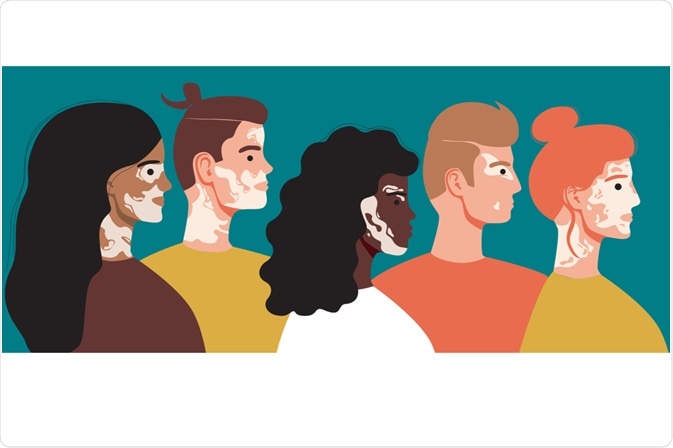Vitiligo is not a life-threatening disease; however, it can cause deep emotional and psychological problems.
Social challenges
Vitiligo can severely inhibit the social life and career of the affected person, especially in less developed areas of the world. In such regions, the white patches are often thought to be the result of leprosy or sexually transmitted diseases.
The social challenges that individuals often encounter can be related to the fact that this condition frequently affects visible areas of the body, such as the fingers, face, arms and feet. Some common reactions to having vitiligo include shame, embarrassment, fear of facing the reaction of others, or depression. It is reported that vitiligo patients have a rate of depression which is twice that of the general population.

Image Credit: Vikky Mir / Shutterstock.com
Managing vitiligo
Coping with vitiligo is easier with good support. Most treatments take a long time to provide results and do not promise complete success in repigmenting the white patches. It is therefore critical for individuals with vitiligo to find a doctor who takes their concerns seriously and works with them to help these individuals improve their quality of life. Healthcare providers can also help manage symptoms of depression.
Some people find that using camouflaging makeup helps them feel better about themselves. However, this is usually possible only with localized vitiligo. Even then, individuals may have to modify the mode of application or change the brand of makeup they use until they are satisfied with its look and feel.
Treating vitiligo can assist in both reducing the burden of disease and providing improvement in terms of the individual's emotional, psychological, and job security. In addition, joining a support group is often very useful to improve the individual's sense of wellbeing and confidence, and may even reduce depressive symptoms.
References
Further Reading
Last Updated: Mar 17, 2021